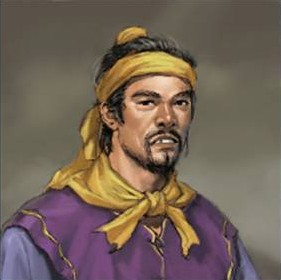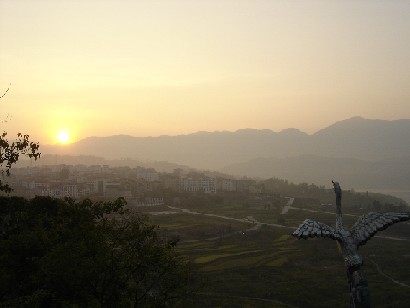| 香港三國志 · 版規 |
 說明 說明
 搜尋 搜尋
 會員 會員
 聲望 聲望
 日曆 日曆
 統計 統計
|
| 歡迎訪客 ( 登入 | 註冊 ) | 重寄認證電子郵件 |
   |
| 黃巾小賊 |
發表於: Jul 9 2006, 05:30
|
 芻狗             發表數: 4,555 所屬群組: 軍團長 註冊日期: 3-02-2005 活躍:12 聲望:557 |
還以為一定有人貼。雖然現時個人沒有甚麼興致,但挑起事端也是太守的工作,嘿嘿!
不知現在可否找到全文。 http://www.thestandard.com.hk/news_detail....&d_str=20060704 The future lies in our hands Regina Ip Tuesday, July 04, 2006 For more than 100 years under British rule, Hong Kong was governed as a Weberian bureaucratic polity with public participation in governance limited to the appointment of eminent persons to the Executive Council, Legislative Council, and the government's network of advisory boards and committees. The prospect of handing Hong Kong back to China in 1997 led the British to renew efforts to democratize Hong Kong, starting with the introduction of the first round of direct elections to district boards in the early 1980s. But in the absence of agreement with China on the pace of democratic development in Hong Kong and the form of democratic government, the British only succeeded in democratizing Legco before they left. Governor Christopher Patten, hailing from the Westminster tradition of parliamentary sovereignty, took dramatic steps to turn Legco into an autonomous body and made the executive branch accountable to it. In the process, Patten stripped the executive branch of its longstanding structural control of Legco and hollowed out the much-touted concept of "executive-led" government. Although the government continues to cling to "executive-led government" as its central credo, by the time of the transfer of sovereignty, Hong Kong had been turned into a semi-democracy, with an autonomous and assertive legislature answerable to its constituents, a largely appointed executive branch with much weaker electoral credibility, and not a single assured vote in the legislature. The dichotomy between the executive and legislative branches is the single most important structural factor accounting for the many governance problems experienced by Hong Kong since the completion of the separation of the executive and legislative branches of the government in 1995. The Basic Law does not provide any manifest solution to this problem because it provides separate election or selection of the legislature and the chief executive respectively, with no organic link between them. Unless this structural anomaly is remedied, the government will continue to find it hard to pursue its agenda and provide an "executive-led" government. In a democratic country, whether it has a parliamentarian or presidential system, political parties play a central role in providing the vital nexus between the executive and legislative branches. Governments with a majority in the legislatures are known to have pushed through controversial agendas or survived political storms by virtue of their strong party support in the legislatures, although some of them might have been elected on a mere plurality of popular votes. Political parties perform many crucial functions in the building of a democratic polity. A government with strong party support in the legislature provides the best prospect of a strong "executive-led" government. Hong Kong's political parties are underdeveloped. They continue to have low membership; insufficient elite participation; cumbersome and secretive procedures; and inadequate policy research and public administration capability. As they stand, our political parties have a long way to go before they can shoulder the responsibility of forming and sustaining governments in office. The democratic debates in recent years have focused on the timetable for implementing direct elections. Undoubtedly, the holding of direct elections for the legislature and the chief executive signals the transformation of Hong Kong into a full democracy. However, direct elections meet only the minimalist, formal requirements of democracy. Hong Kong stands to benefit from more comprehensive and in-depth consideration of all the structures necessary for the building of a democratic polity. The key components of the democratic infrastructure include: greater maturation of political parties; development of political talents; fostering of a democratic political culture; greater development of civil society and last but not least, institutional re-engineering to resolve the current disconnect between the executive and legislative branches, and introduce an electoral system for direct elections. On the maturation of political parties and the development of more political talents, the government could do a lot to help by enhancing the honorarium and accountable allowances payable to Legislative Councillors. As the brightest and best in Hong Kong have traditionally clustered around trade, commerce, industry and the more lucrative professions, the government could help make political participation and public policy deliberation a more attractive career by providing suitable financial and other incentives. On institutional re-engineering, both the government and the central authorities in Beijing need to recognize the debilitating disconnect between the executive and legislative branches, a systemic problem that is undermining the government's effectiveness and hampering its ability to tackle longer- term structural economic and social problems. Consideration ought to be given to amending the Basic Law to restore the organic nexus between the executive and legislative branches, present in the colonial era and in a full-fledged representative democracy. Before Hong Kong can move toward direct elections, it needs to design an electoral system that complies with all the underlying principles of the Basic Law: 1) development in the light of actual situation; 2) gradual and orderly progress; 3) balanced representation; and 4) facilitation of the capitalist economy. Sir David Akers-Jones proposed the establishment of a bicameral system, to provide a second chamber which accommodated all functional constituency members. The objective was to comply with the principles of balanced participation and facilitation of a capitalist economy. Akers-Jones' effort is laudable as legislators from functional constituencies have comprised representatives with diverse occupations and professions in Hong Kong, who are well placed to contribute their professional experience and expertise to Legco proceedings and the executive branch on election into office. Historically, our captains of industry and commerce have served Hong Kong well through their participation in public service. It would be a sad waste of their talents, and of the fine tradition of elite participation in public service, if institutional arrangements are not made for them to continue to play a pivotal role in Hong Kong's emerging democratic polity. In comparison, the government's proposals for empowering the district councils - beefing up their responsibilities and the remuneration of and support for district councillors - are presumably designed to attract more political talents to district service; and lay the way open for using the District Council Constituency to allow greater participation by directly elected members in the legislature. Apart from the question of whether empowering district councils to play a greater political role is consistent with Article 97 of the Basic Law, it would be difficult for such arrangements to comply with the principles of balanced representation and facilitation of our economy if the directly elected component of Legco is enhanced by institutionalizing the participation of directly elected members from small geographical constituencies and a much narrower, more parochial focus in public affairs. A better way needs to be found to facilitate the transformation of Legco into a directly elected legislature. There are grounds for cautious optimism towards the implementation of direct elections for the chief executive and the entire legislature in 2012. Despite Hong Kong people's reputation for political apathy, there are encouraging signs of greater awareness on the part of Hong Kong's elite for the need to play a greater part in the civil and political life of Hong Kong. The emergence of a number of think-tanks dedicated to studying issues germane to Hong Kong's further political, social and economic development is a case in point. The constitutional reform package put forward by the chief executive last fall came very close to getting the necessary legislative approval. Provided that an appropriate electoral system for the legislature can be designed which complies with all the principles of the Basic Law, stated or implied - and a consensus is forthcoming in Legco on the way forward - there is no reason why direct elections to the fifth term of the legislature could not be held in 2012. But a way will need to be worked out to dovetail the two sets of elections: those for the legislature and the chief executive respectively, and to restore the organic nexus between the two. The future of Hong Kong's democratic development lies in the hands of its people. The work involved requires a lot more than the chanting of slogans or the holding of mass demonstrations. It requires people to think carefully about the institutional and infrastructural requirements, and play their part in accordance with their respective aspirations in life. The future lies in our hands, and we the people should grasp the democratic moment. This article is a summary of Regina Ip's Master of Arts thesis at Stanford University, Hong Kong: Case Study in Democratic Development in Transitional Society 本篇文章已被 黃巾小賊 於 Jul 9 2006, 05:31 編輯過 -------------------- 板友Leaf:「黃巾賊本來都和你我一樣是小市民一個,對一個小賊來說,當黃巾賊可能是餓死之外的惟一選擇......」
魯迅:「人民處於官兵與強盜之間,不論被裹從或自願參加,都是拿兩面旗;賊來了從賊,官來了從官。」 板友呂遜:「不論是出於孝心還是貪心,偷就是不對,偷就是賊。」 孔子:「老而不死,是為賊。」 |
| 阿暪 |
發表於: Jul 9 2006, 09:26
|
 一品官             發表數: 5,279 所屬群組: 一般 註冊日期: 8-17-2004 活躍:15 聲望:1208 |
這是 SUMMARY 而不是該論文本身......
太長...現在沒心情看...... 只留意到這幾句: Before Hong Kong can move toward direct elections, it needs to design an electoral system that complies with all the underlying principles of the Basic Law: 1) development in the light of actual situation; 2) gradual and orderly progress; 3) balanced representation; and 4) facilitation of the capitalist economy. Political parties perform many crucial functions in the building of a democratic polity. A government with strong party support in the legislature provides the best prospect of a strong "executive-led" government. Hong Kong's political parties are underdeveloped. They continue to have low membership; insufficient elite participation; cumbersome and secretive procedures; and inadequate policy research and public administration capability. 本篇文章已被 阿暪 於 Jul 9 2006, 14:32 編輯過 -------------------- 暗淡了刀光劍影,遠去了鼓角錚鳴
眼前飛揚著一個個鮮活的面容 湮沒了黃塵古道,荒蕪了烽火邊城 歲月啊!你帶不走那一串串熟悉的姓名 興亡誰人定啊!盛衰豈無憑啊! 一頁風雲散啊...變幻了時空 聚散皆是緣啊!離合總關情啊! 擔當生前事啊...何計身後評? 長江有意化作淚,長江有情起歌聲 歷史的天空,閃爍幾顆星 人間一股英雄氣... 在馳騁縱橫... |
| 秋盈 |
發表於: Jul 9 2006, 10:46
|
 聖教教主             發表數: 2,915 所屬群組: 君主 註冊日期: 9-19-2003 活躍:11 聲望:739 |
這篇只是葉太論文的撮要,並非原文。我已把中、英文版剪存,準備寫一篇文章討論她的觀點。
且不論葉太如此高調地公布論文撮要的用意,她的意見始終一矢中的,點出了香港政治困局的癥結所在。儘管我希望看到更具體的改善建議(不知論文內容有沒有,如能看到就好了),總比陳方安生和泛民主派那種「有姿勢、沒實際」的舉動更得人心。 -------------------- |
| 懶蛇 |
發表於: Jul 9 2006, 14:09
|
||
 中國人不吃這一套             發表數: 22,672 所屬群組: 太守 註冊日期: 9-22-2003 活躍:43 聲望:1908 |
因言廢人、因人廢言的香港人見到葉太個名﹐還會再看下去嗎﹖ --------------------  |
||
| 阿暪 |
發表於: Jul 9 2006, 14:29
|
||
 一品官             發表數: 5,279 所屬群組: 一般 註冊日期: 8-17-2004 活躍:15 聲望:1208 |
不只是「因言廢人、因人廢言」, 是香港頗大部分人是不會去看/無能力去理解這類學術性的文章. 對大部分人來說還是煽情的口號較能有影響力. -------------------- 暗淡了刀光劍影,遠去了鼓角錚鳴
眼前飛揚著一個個鮮活的面容 湮沒了黃塵古道,荒蕪了烽火邊城 歲月啊!你帶不走那一串串熟悉的姓名 興亡誰人定啊!盛衰豈無憑啊! 一頁風雲散啊...變幻了時空 聚散皆是緣啊!離合總關情啊! 擔當生前事啊...何計身後評? 長江有意化作淚,長江有情起歌聲 歷史的天空,閃爍幾顆星 人間一股英雄氣... 在馳騁縱橫... |
||
| Leaf |
發表於: Jul 12 2006, 12:00
|
||||||
|
請開金口             發表數: 3,516 所屬群組: 一般 註冊日期: 9-19-2003 活躍:13 聲望:428 |
不好意思說句 早排民主派提出最高工時和最低工資等利民具體建議, 也有提出把政府合約僱員轉為長工停止繼續搞分化的具體建議, 政府入面有沒有人會去理會? 有沒有人會有心聆聽! 本篇文章已被 Leaf 於 Jul 12 2006, 12:21 編輯過 --------------------
原來猥褻侵犯不但只要啞忍,還要打開雙腳歡迎入去要大叫熱咕真是大開眼界! 某日,某蛇與某b曾是水火不相容的敵人 今日,某蛇與某b是雷打不動的戰友 果真如言,沒有永遠的敵人,也沒有永遠的朋友,只有永遠的利益? |
||||||
| 茶水小妹蘋兒 |
發表於: Jul 12 2006, 13:35
|
||||
 還沒長大的傲嬌氣小蘋果呦            發表數: 1,623 所屬群組: 一般 註冊日期: 9-18-2003 活躍:8 聲望:490 |
不好意思說句 早排民主派提出最高工時和最低工資等利民具體建議, .. .. 為什麼民主派請幫工,出的人工比M記還低XDDDDD -------------------- I nyo talk funny, nyou talk funny!!!
孔子:「老而不死,是為賊。」 |
||||
| Superdog |
發表於: Jul 12 2006, 21:47
|
||||
 八品官      發表數: 256 所屬群組: 一般 註冊日期: 4-01-2005 活躍:2 聲望:40 |
立法會是做甚麼用的?而且這跟改善政局勢態有啥關係? --------------------  |
||||
0 位使用者正在閱讀本主題 (0 位訪客及 0 位匿名使用者)
0 位會員:
 |
   |
[ Script Execution time: 0.0142 ] [ 13 queries used ] [ GZIP 啟用 ]







